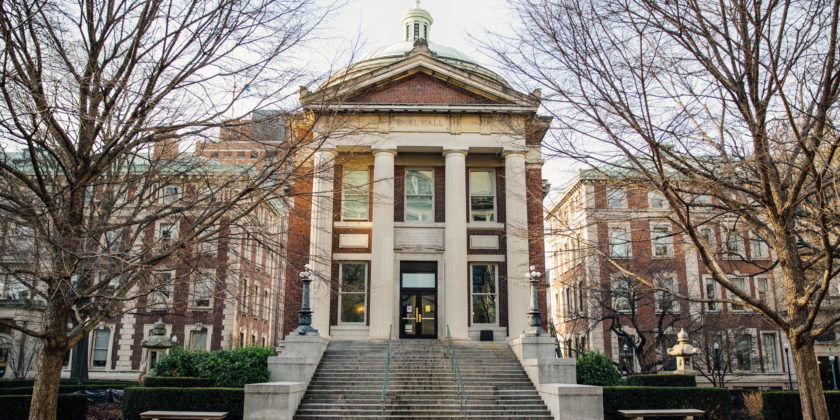College Waitlist: What to Do to Maximize Your Chances
Some colleges and universities can’t admit all of the students they would like to, so many are put on the waitlist. And this year, COVID-19 might again impact yield, meaning more colleges will need to go to their waitlist to fill the incoming class.
For a sample update letter, please subscribe to our blog (link below) and email us requesting it and we will share it within 24 hours.
Despite more schools possibly needing to go to the WL, getting admitted from the waitlist is not exactly easy. However, it is possible with some work! Although I do not suggest being overly optimistic, there are strategies that have worked for students in the past that I am going to share in this post. Of course, if you want individualized guidance, we can provide it, so please reach out.
First, get familiar with the WL data from past years. How many students are offered spots on the WL? How many accept their spot, and more importantly, how many does school X ultimately admit? Some of these numbers are dismal, but it is best to know what you are up against. Look at the Common Data Set first (http://www.commondataset.org/). A few other sites to review:
Before implementing waitlist strategies (below), it is important to deposit at a current top choice school (a school where you have been admitted) and get excited about the prospect of attending. Take advantage of admitted student days and other events that connect you with potential future classmates, including joining “Class of 2025” social media groups. These forums are often very informative, fun, and can help you take your mind off the waitlist waiting game.
Once you have accepted a spot on the WL, deposited elsewhere, and familiarized yourself with the waitlist data, I suggest considering the strategies below. Not all of them are novel, but without much to lose, why not do all you can so you can look back without any what-ifs?
- Write a waitlist letter. This letter should contain information updating the school on what you’ve been up to both inside and outside of the classroom since the time you applied. Consider including:
- Academic Update: Spend some time talking about coursework and school projects, and make connections to future courses of study. You can even drop in related courses you’d like to take at school X, like those you’d include in a Why School essay, but only do this if you did not submit an essay of this type when you applied, otherwise you are being redundant and that is not well-received.
- Extracurricular Updates. But only if significant and can be connected to how you will add value to the school where you are deferred. This includes school and non-school clubs, service commitments, and/or other leadership experiences you can highlight. Like the academic paragraph(s), making connections to similar opportunities you plan to undertake in college can be helpful additions. For example, if you talk about a new project you spearheaded as VP of your school’s Interact Club, you may want to include that you hope to lead a similar project within a specific club or group at school X. Being very specific is important.
- The additional ways you have connected with and continued to get to know school X since you applied. This could include setting up an informational interview with a local alum, a current student, reaching out to your local regional alumni group (more on this below), or continuing to connect with your regional rep via email.
- Send your waitlist letter to your regional rep (if an option) or upload it on your applicant portal. Ask whoever you address it to if they have any advice for you as a waitlisted candidate. Keep this line of communication open; do not send updates every week, but stay in touch to continue to demonstrate interest.
- Ask your guidance counselor to call the admissions office and advocate for you, as well as provide any additional information they may have that will support your candidacy. Ask them to back up what they say on the phone in an email if they have time and are willing. Make sure they send updated grades/transcripts promptly. Your grades should have remained the same or gotten better, not dipped.
- Obtain and have an extra letter of recommendation sent, but only if the school welcomes extra LORs (some schools explicitly state on their WL docs they do not welcome or want extra LORs). A teacher, coach, or someone else close to you who can speak to your potential contributions to the university could draft this letter. *Side note on alumni letters and letters from well-known and or famous people. Many students ask if these are helpful to send, and the answer is no unless the person knows well you or they are a very high-level donor with solid connections to admissions (even then why count on someone else?). If you think that a big name vouching for you will help, it generally doesn’t as a stand-alone factor, and officers can see through these often brief and less than meaningful notes.
Consider the following strategies in addition:
- Check if school X has a local alumni group (Google search) and if so, reach out to them and ask if there is anyone willing to meet with you via Zoom or Skype for an informal informational interview. Use this meeting as an opportunity to learn more about the school, as those learnings might be good fodder for a WL update.
- Use social media to your advantage. Don’t be afraid to follow your WL school on TikTok, Instagram, or other social channels to connect. Don’t forget to open all email correspondence from the school, as schools track opens/clicks as interest.
Now… showing up on campus or other over-the-top gimmicks or antics would be looked down upon, so please understand that this type of behavior is not appreciated or welcomed. The good thing is, you can’t show up on campus now, but take this note as a reminder of the level of inappropriate that is a big no.
Ultimately, you want to look back on being waitlisted and feel like you gave it your best shot!
More questions about the WL? Email us!
For a sample letter, please subscribe to our blog (link below) and email us requesting it and we will share it within 24 hours.
*Stay in the know! Subscribe*









